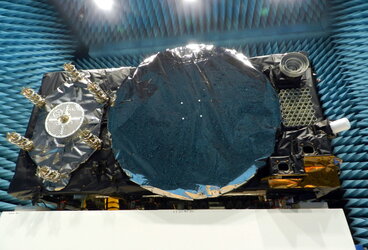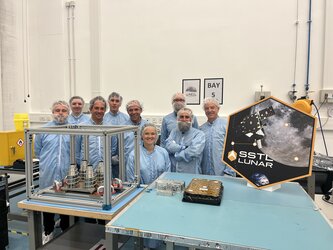

Open Service Navigation Message Authentication
In a first for any satellite navigation system, Galileo has achieved the first positioning fix based on navigation signals carrying authenticated data. Intended as a way to combat malicious ‘spoofing’ of satnav signals, the authentication testing took place at ESA’s Navigation Laboratory – the same site where the very first Galileo positioning fix took place back in 2013.
These historic first authenticated signal ‘position, velocity, timing’ fixes were made using a total of eight Galileo satellites for around two hours on 18 November. The tests represent a first proof of concept for an eventual operational service offering positioning with authenticated data to users.
Up until now, as a navigation satellite disseminates navigation and timing data, there is no way of confirming these data are indeed coming from their apparent originator. As a result the data can be relatively easily falsified, a phenomenon known as spoofing, where corrupt false signals mislead receivers about their position, misleading their users in turn, with potentially serious consequences.
An ESA Navigation Directorate team at the Agency’s ESTEC technical centre in the Netherlands worked with their GSA counterparts at the twin Galileo Control Centres (GCCs) in Italy and Germany and the Galileo Service Centre (GSC) in Spain to develop and test the Open Service Navigation Message Authentication (OSNMA), using spare bits in Galileo's public Open Service. It works on a comparable basis to everyday encryption, where sending a digitally signed document involves both sender and recipient using compatible cryptographic keys (private and public) to validate the document’s source of origin.





